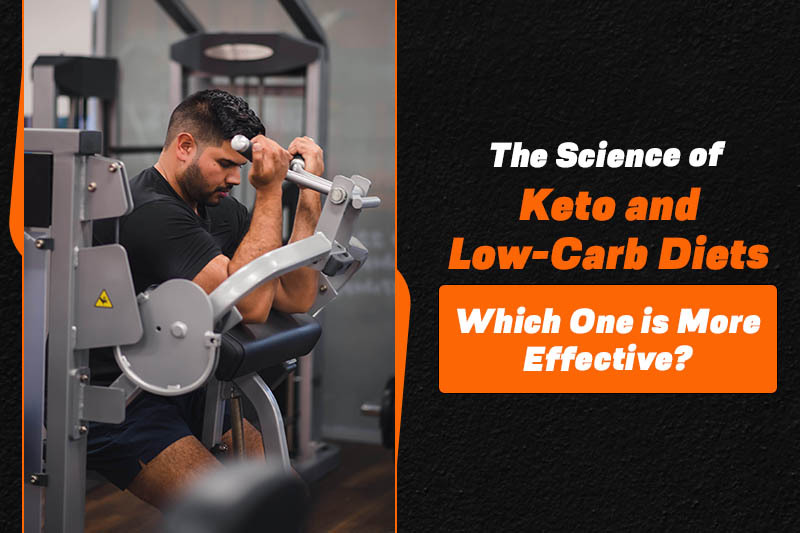ALWAYS OPEN 24/7

Following the keto or low-carb diets to promote weight control and metabolic wellness is so trendy. Both diets are centered around restricting carbohydrates but differ significantly when one examines their structure, operation, and impact on the body. Learning the science behind the way every diet works can allow one to make up their own minds, particularly those who wish to discover a working way of losing weight, being given a boost of energy, or regulating metabolism.
The ketogenic diet is a highly restrictive low-carb, high-fat diet, where daily carb consumption is generally restricted to less than 5% calories, and the diet derives about 70-80% of its calories from fats. Such strict restriction puts the body into ketosis, where fat becomes the body's underlying fuel source instead of carbohydrates. Ketosis maximizes the output of ketone bodies as fuel that gain energy, improve intellectual acuteness, and allow weight loss.
Low-carb diet is a less stringent variant, keeping the intake of carbs at 20%-45% daily calories. Unlike keto, it does not seek to cause ketosis but restricts the sugars and starchy carbs such as rice, pasta, and bread. This is an easier approach in the long term and appealing to individuals looking for a balanced manner of lifestyle modification without severe restriction.
Both the keto and low-carb diets will result in weight loss, but the mechanisms are slightly different. A trial by The American Journal of Clinical Nutrition found that low-carb diets produced equivalent weight loss to that of low-fat diets over one year, and the keto diet will generally result in faster initial weight loss through glycogen loss and water loss.
A meta-analysis in Obesity Reviews was arrived at by the fact that diets of lower carbohydrate content will produce greater weight loss compared to those of lower fat content, with a mean of 2.2 kg in a 6 to 24-month period. The ketogenic diet is able to produce quicker early results but demands utmost discipline that is unacceptable to others in the long term.
The connection of these diets to cardiovascular disease is multifaceted. Low-carbohydrate diets can result in increase of LDL cholesterol ("bad cholesterol") and consequences for heart disease risk. Keto has indicated beneficial change in HDL cholesterol ("good cholesterol") and triglycerides but long-term cardiovascular results are under research. Consultation with a health care professional before initiating such diets is advisable, especially in patients with prior heart disease.
Research from the University of Texas Health Science Center has proven that hormonal differences explain different male and female reactions to keto diets. Estrogen appears to buffer against some of the ill effects in women, potentially making the keto diet more beneficially effective on women's metabolic health than on men.
Elderly people or those with medical conditions such as diabetes, kidney disease, or thyroid issues should proceed with extreme care. Keto has potential for neurologic illness like epilepsy but isn't yet fully understood in its long-term effects on the elderly. Professional medical advice is the way to begin both diets.
For residents of Shepparton, incorporating a well-formulated fitness program in Shepparton along with nutrition consulting is the formula for success. Gyms around the area provide assistance towards different objectives, including keto, low-carb, or balanced dieting. The likes of cheap gyms in Shepparton avail one of professionals who can customize exercise as well as meal planning according to respective needs.
Both the ketogenic and low-carb diets have proven benefits when scientifically understood and carefully applied. Keto can offer faster weight loss but may be more difficult to sustain long term. Low-carb provides a more balanced and manageable approach.
Ultimately, the most effective diet is the one that fits individual health status, goals, and lifestyle sustainably. Professional guidance from dietitians and fitness experts ensures a safe and effective journey toward better health.